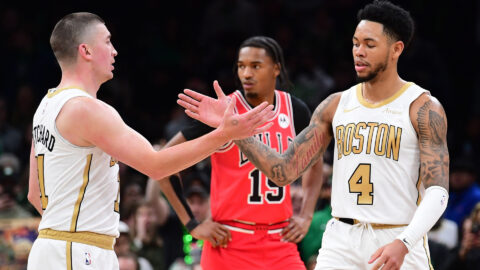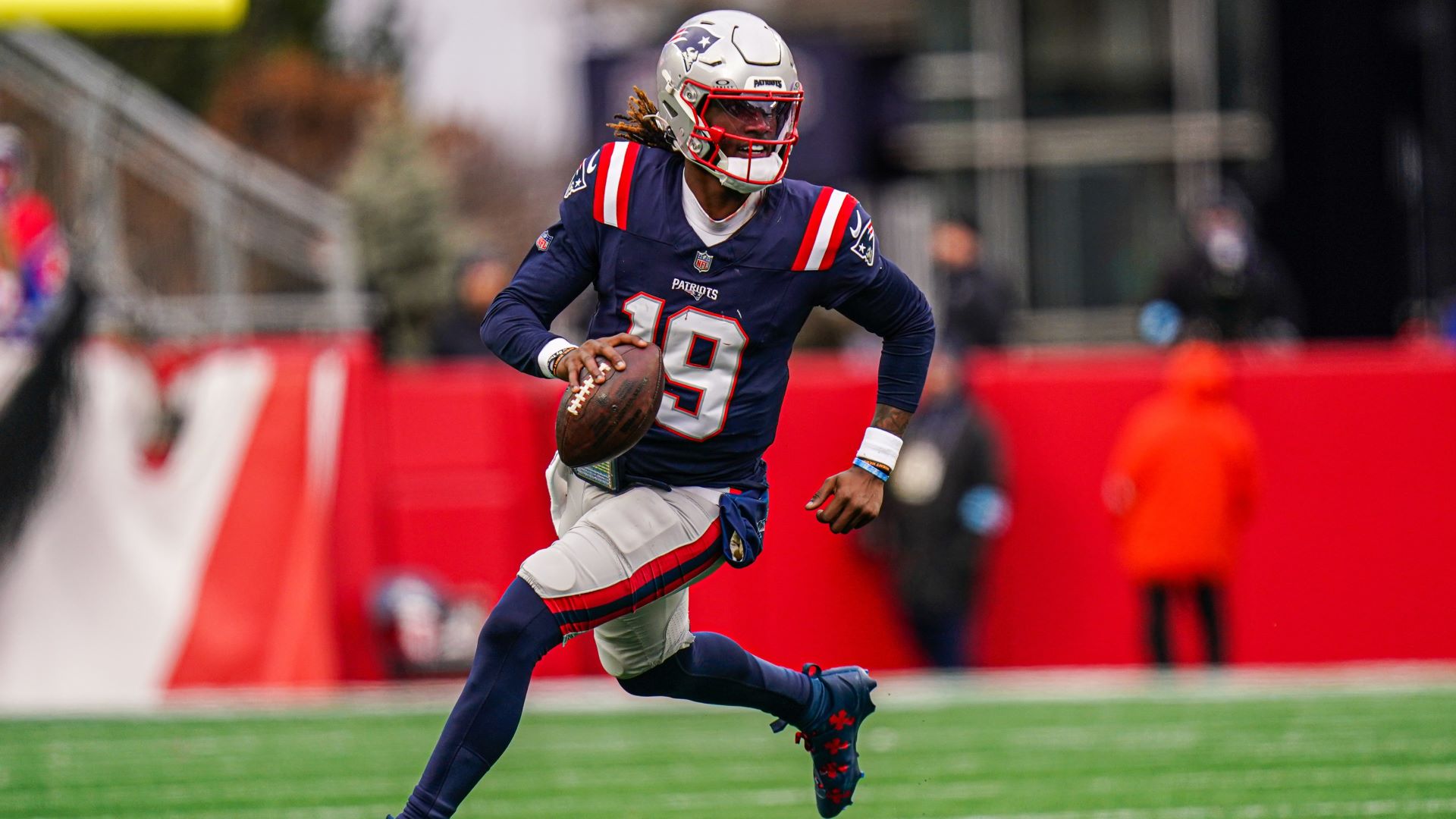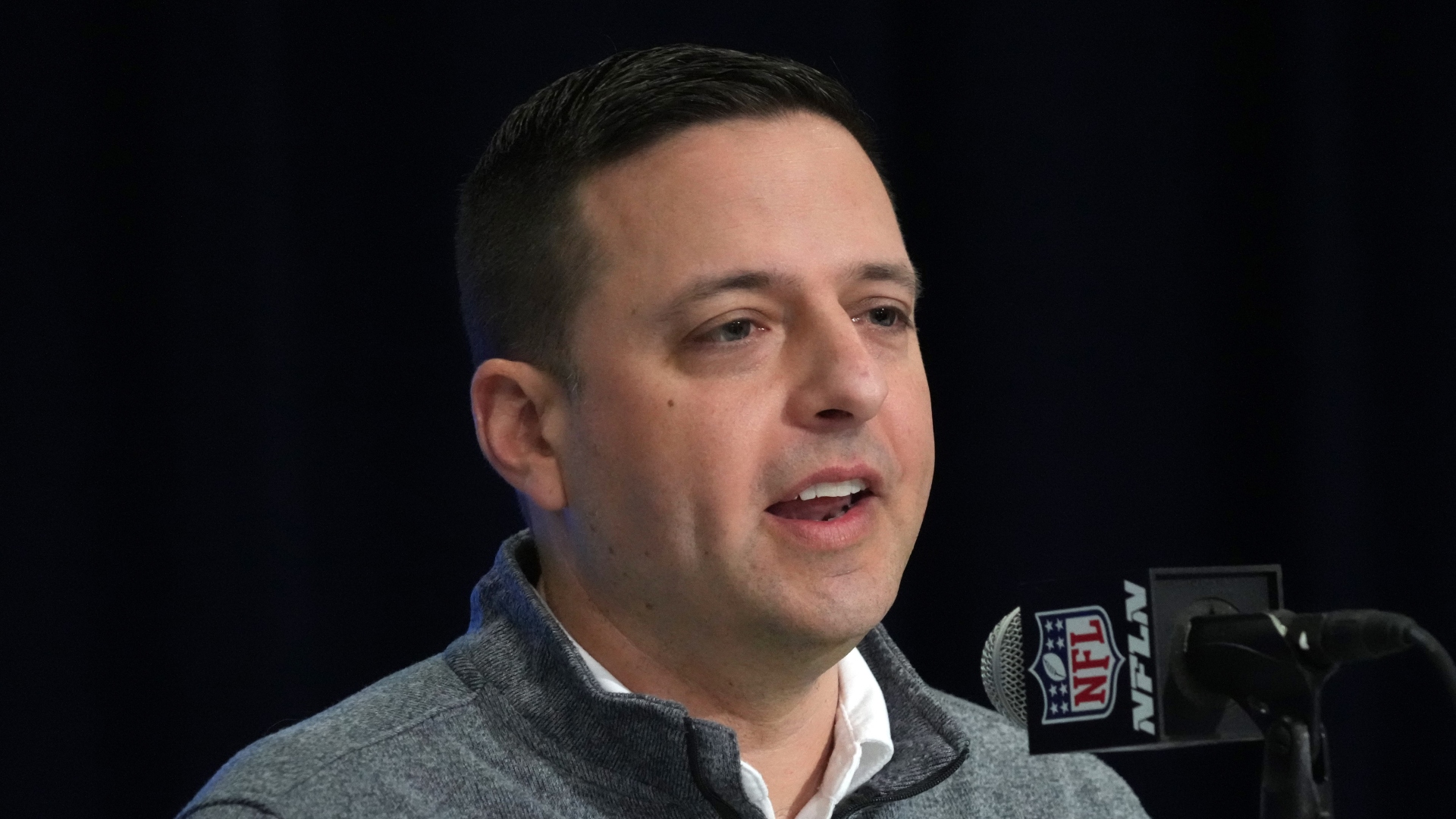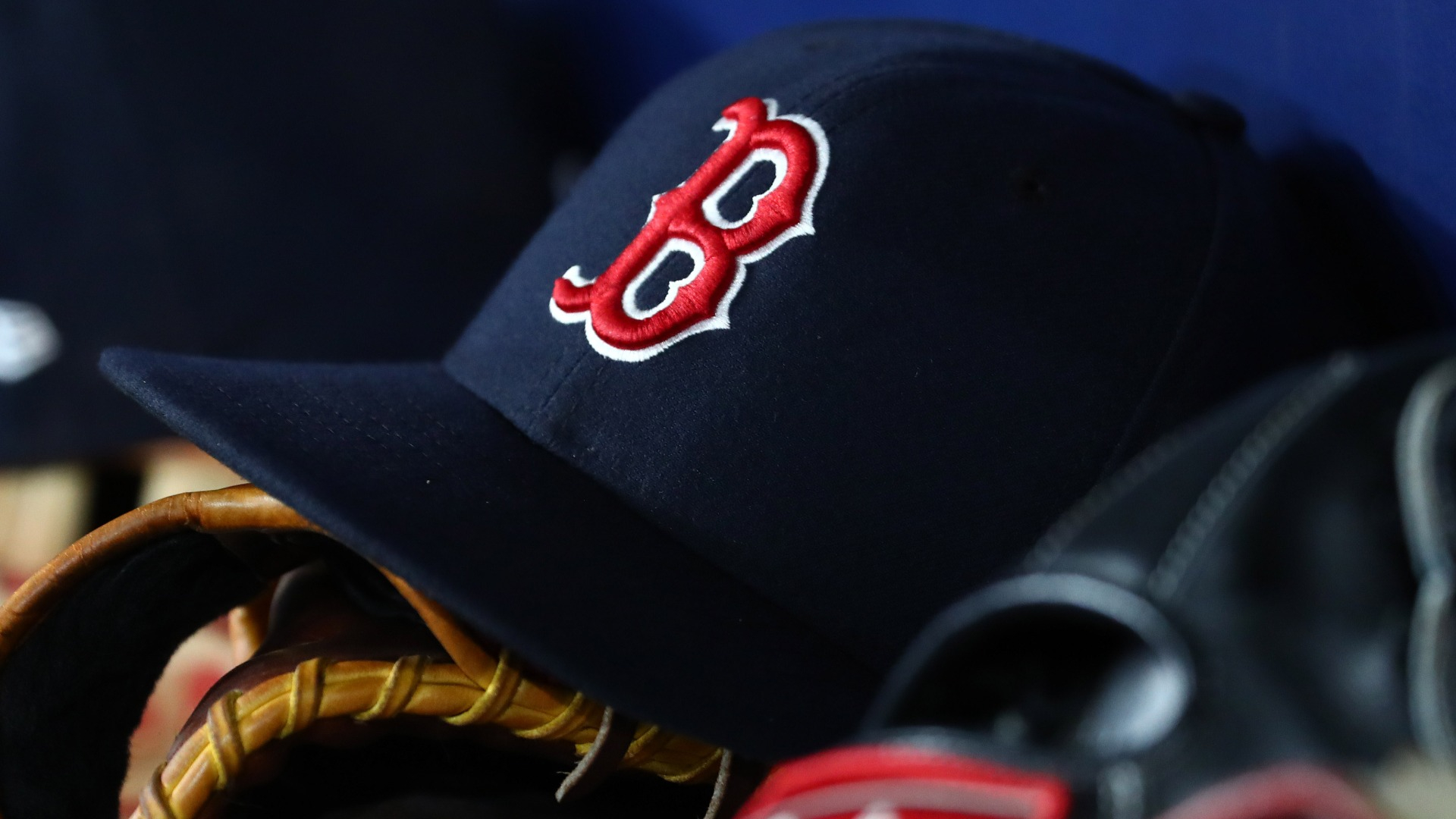2024 marks the 20th anniversary of the 2004 Boston Red Sox World Series championship team. Throughout the year, NESN.com will reflect on several key moments from that historic season.
Part 3: A comeback for the ages that stunned the New York Yankees in the 2004 American League Championship Series.
The Boston Red Sox dominated during the earliest days of the World Series. They won five titles in 16 years. They were synonymous with winning and laid the groundwork as one of baseball’s historic franchises.
That came to an abrupt halt after 1918, when the Red Sox moved baseball icon Babe Ruth to the New York Yankees, starting a turn to the wrong side of history for the next 86 years.
The Yankees won 26 World Series championships, becoming far and away the class of the sport. The Red Sox fell to lulls of mediocrity, sprinkled with gut-wrenching losses that crushed championship dreams.
Story continues below advertisement
The Yankees played into the Red Sox’s pain, spoiling runs in 1978, 1999 and 2003. There was no end in sight for Boston. And that looked to be the story once again in 2004, when the teams met in the ALCS for the third time in six seasons.
The Yankees rolled through the Red Sox to take a 3-0 series lead, a mark that was previously insurmountable in Major League Baseball history. All hope seemed lost. Everyone wrote off Boston. But just as the Yankees prepared to seal the deal, finishing the same old story, the Red Sox ripped away the pen. A new chapter of the storied rivalry was to be told.
Speaking exclusively with NESN.com 20 years later, former Red Sox players Johnny Damon, Jason Varitek, Bill Mueller and Dave Roberts, as well as broadcasters Joe Castiglione and Chris Myers, recounted the greatest comeback in baseball history.
Story continues below advertisement
“It’s really overwhelming to have observed something so historic,” Myers, FOX’s sideline reporter for the 2004 ALCS, said. “Not just with the Red Sox and the 86 years and the curse and the fans. That’s the other thing about spending time in Boston. Being around fans at that time and getting a real feel for how they felt, which was part of what they wanted me to do with some side stories. It was endearing almost to this pain of Red Sox fans. Then, of course, the mighty Yankees. You love them or hate them around the country.”
“It was the Red Sox-Yankees rivalry at its height,” Castiglione, the team’s longtime radio voice, said.
THE MINDSET
The Red Sox quickly fell behind in a series that seemed over before it started. The Yankees held off a late, furious Boston rally for a 10-7 Game 1 win. Pedro Martinez pitched well in Game 2, but the Yankees did enough for a 3-1 victory.
Story continues below advertisement
When the series shifted to Fenway Park, New York unloaded with an unstoppable offensive attack that rocked Boston and crushed any hope with a 19-8 win.
“I think it was what that team’s mentality always is: Take care of business today,” Varitek said. “Then, we got punched in the face.”
“My only thought was, ‘The Yankees aren’t that good and the Red Sox are too good to be swept in four games.’ I had no idea they could win it,” Castiglione said.
Story continues below advertisement
The same old story was just about complete: A promising season for the Red Sox falls short at the hands of their greatest rivals. The 2004 season showed no signs at that point of changing fate.
Boston took the field with a specific goal: To win one game, extend the series and see what happens. Kevin Millar famously offered the rallying cry of “don’t let us win today” in a pregame conversation with The Boston Globe’s Dan Shaughnessy.
“I give a lot of credit to Kevin Millar. I really do,” Roberts said. “I know there was a lot said about it. Kevin was the one that kind of kept everyone positive — more focused on one day at a time. He kept the energy up. With that, everyone kind of rallied around him. It was true.”
Story continues below advertisement
While that became the mantra for the Red Sox to the public eye, Boston’s eventual captain knew the sentiment existed long before Millar’s monologue.
“Millar can’t always take that,” Varitek said. “That was instilled from Jimy Williams a long time ago.”
The Red Sox had significant comebacks in the postseason recently, under Williams in the 1999 ALDS and under Grady Little in the 2003 ALDS. Another chance presented itself in the 2004 ALCS.
Story continues below advertisement
The series continued in Boston a day later than anticipated, after a rainout postponed Game 3. And that aura seemed to surround the city after the disastrous start to the series.
“I did some report before that game that turned the tide for the Red Sox when they were ready to be swept,” Myers recalled. “It was something about being rainy, dreary and damp and gloomy. It almost felt like a funeral. I didn’t say the Red Sox had given up, but there was kind of a feeling there. Maybe that was our perspective.”
Myers remembered a specific reaction in the aftermath of that report with Red Sox manager Terry Francona, which told him all he needed to know about the team’s mentality.
“Francona came up to me and said, ‘Hey, I respect your work. I know you’re here every day around us. They may look gloomy,’ ” Myers added. “It was a sincere stare in the eye. He didn’t say they were going to turn around and win it. He was like, ‘We’ve got fight in us left.’ “
Derek Lowe, who went to the bullpen after a tumultuous regular season as a starter, got the ball for Game 4. Tim Wakefield surrendered his start to take one for the team and eat innings for the Red Sox in the Game 3 onslaught.
“I guess there was no panic,” Damon said. “I guess we were in shock. For us to win, we have to be great. Offensively, defensively, pitching, we would have to have some luck on our side. A number of things. A number of factors. It all came together.”
THE STEAL
The Red Sox came to the plate in the ninth inning of Game 4, three outs away from elimination and another long offseason.
The scenario only grew harder with a generational closer, Mariano Rivera, on the mound for the Yankees. Rivera in October was nearly automatic, making an uphill climb even steeper for Boston.
The Red Sox, however, cracked the closer’s armor before. Boston overtook Rivera for a walk-off win in July at Fenway, before beating him again in September at Yankee Stadium.
Breaking through in the postseason was unlikely — but far from impossible. Millar worked a leadoff walk. The Red Sox, who needed a dynamic spark, turned to Roberts as a pinch-runner.
“You’re in Fenway,” Roberts recalled. “It’s October. It’s freezing cold. The dugouts are tiny. How do you prepare and get yourself ready for that moment in time? It was basically knowing that Tito (Terry Francona) let me know that if anybody gets on base, be ready to run. Fortunately for me, it was Millar, who is not really fleet of foot. He had a great at-bat against Mariano, who doesn’t walk guys. I was at the end of the bench. Helmet on. Batting gloves on. Ready for that moment. Once he got ball four, Tito looked at me and I know he winked at me like, ‘OK, you’re up.’ I just trotted out there.”
Roberts immediately knew his job: steal second base. Every person in the ballpark knew it. Rivera clearly did, too, as he threw over to first base three times before he delivered a pitch to Mueller.
“It’s one of those things where I prepared throughout the postseason and toward the end of the regular season for that role,” Roberts said. “To come in, be ready to steal a base when called upon. It was something I had never done before. It took me time to get used to it.
“Everyone in the ballpark knows you’re going to steal second base. You’re going to. You can’t be afraid to take that chance. That’s something that really weighed heavily on my mind.”
Roberts wasted no time when Rivera delivered a pitch. He broke for second base and beat a remarkably quick exchange from catcher Jorge Posada. The speedy runner slid headfirst, just in time ahead of the tag by shortstop Derek Jeter. The Red Sox had a man in scoring position and the Fenway Faithful had life.
“That, to me, in my mind, changed everything,” Myers said. “Stealing second off of Mariano Rivera, that doesn’t happen.”
Roberts did his job. Now, it was up to Mueller (who clubbed the walk-off home run in July) to do his. He hit an RBI single to center field. Roberts crossed the plate, deflated the Yankees and energized Red Sox Nation.
“You always simplify,” Mueller said. “You get to the elements that you can control. You always have your one cue word that helps your chain of command that’s linking all of the things you do at the plate together. You block everything else out. One of the few things I do miss is when you get those big hits, running up the line is super quiet and then halfway up the line, you finally hear the crowd. You’re just so in that moment and concentrating on that performance part that blocks everything else out. It’s pretty amazing.”
The game went into extra innings. And before long, one Red Sox slugger began his path toward baseball lore.
THE HERO
David Ortiz already had impact postseason hits on his Red Sox résumé when Boston took the field for Game 4.
He helped Boston take the lead against the Oakland Athletics in Game 4 of the 2004 ALDS, for instance. Plus, he already had one big hit in Game 4 when he put the Red Sox in front with a two-out, two-run single in the fifth inning.
But Ortiz stepped to the plate in the 12th inning against reliever Paul Quantrill with the chance to extend the ALCS — and he did just that.
Ortiz blasted a 2-1 pitch over the right field wall for a Red Sox win in the early hours of the morning, sparking a memorable call from Joe Buck on the FOX broadcast.
“Ortiz into deep right field. Back is Sheffield, we’ll see you later tonight.”
“I remember with the Ortiz homer with him running around and we were late to get off the air,” Myers recalled. “They wanted me to run to get to him and he’s out of breath at home plate. I’m kind of out of breath running up to talk to him. I couldn’t understand anything he said in his excitement.”
The teams reconvened for Game 5 after a quick turnaround for another marathon duel. Ortiz again found himself right in the middle of the action.
The Red Sox designated hitter singled in a run in the first inning before he smacked his second homer of the series, going to the opposite field over the Green Monster in the eighth inning to cut Boston’s scoreboard deficit to one. Boston tied the game in that frame on a Varitek sacrifice fly against Rivera that scored Roberts — a true déjà vu moment.
This time, the teams clashed into the 14th inning in a game that nearly exceeded the six-hour mark. Ortiz earned the opportunity to save the Red Sox again. He fought his way to do so on a pitch he muscled into center field to bring home Damon for a second consecutive walk-off hit.
“Getting on base, especially for a guy like Big Papi,” Damon said. “We had a deep, protected lineup. Looking back, the Yankees can say, ‘Let’s not pitch to Big Papi at all’ because he was an absolute beast during that series. It just seemed like everybody on our team pitched in.”
“That’s who David was for us,” Varitek said. “He developed from being a platoon player to our other main cog besides Manny (Ramirez) in our lineup. David’s knack for the big hit was well before that. In big moments, he continued to always have the big hit.”
Ortiz took it upon himself to lift the Red Sox following Game 3 and willed them back to New York with an unimaginable series of clutch hits at Fenway Park. The series was far from over, with Ortiz as the main reason why.
“At that point, you could just see that the Yankees started to feel the pressure,” Roberts said. “Once we won Game 5, I just felt that there was no way we were going to lose.”
“It was exhilarating to win that Game 4,” Castiglione said. “Then you started to believe after Papi hit the walk-off bloop single in the 14th inning of Game 5. I remember the exhilarating feeling that gave us getting on the bus to go back to New York.”
THE FALL OF THE EMPIRE
The Red Sox still needed two wins in baseball’s most hostile environment to extend their season, rewrite history and go to the World Series for the first time in 18 years.
“I think you live on adrenaline,” Castiglione recalled. “You hope for games like that because most people don’t get to experience them in their careers.”
“In these moments, there was hope,” Myers said. “There was something magical happening after that one game turned. You started to feel like maybe we’d get a full series. Maybe the Red Sox can pull this off. It’s amazing they kept going the way they did.”
The 2004 ALCS came down to heroics, which continued in Game 6 at Yankee Stadium.
Mark Bellhorn delivered a three-run home run to left field that deflected off a fan. Umpires confirmed the call, and later overturned another call when Alex Rodriguez slapped the ball out of Bronson Arroyo’s glove while running up the first base line.
“Baseball is a funny game, and I’m just glad the stars aligned for us in that game and the games afterwards,” Damon said. “You gotta remember in Game 6, we got fortunate the umpires came back and reversed calls. … I asked (umpire) Joe West to take a look at Mark Bellhorn’s hit. He said he couldn’t do anything unless (Francona) asked him to convene with other umpires. I said, ‘Tito, go talk to him! They’re not listening to me, but they’ll listen to you.’ “
“That all turned at the same time,” Varitek said. “We started executing what we were doing and put that in a different spot. Less mistakes and less missed opportunities in close games.”
On the mound, Curt Schilling responded from a disastrous Game 1 start to gut out seven innings of one-run ball with a bloody sock from his tendon surgery. The Red Sox acquired Schilling for a reason the previous winter and he delivered the performance Boston needed.
Boston had one final heart-stopping sequence in the ninth inning. Tony Clark faced Keith Foulke as the potential winning run. Foulke struck him out, stranded the runners, closed the game and willed the Red Sox to Game 7.
No team had ever forced a Game 7 after trailing 3-0 in a best-of-seven MLB postseason series, but the job still wasn’t finished for Boston.
“Things were starting to turn,” Roberts said. “We felt that. At that point in time, we were like, ‘We got these guys.’ “
The Red Sox and Yankees met in New York for Game 7 for the second consecutive October. Boston had all of the momentum but still had 27 outs to go. To complete the comeback, the Red Sox needed their leadoff hitter, Damon, to get right after a brutal series (3-for-29) to that point.
“I was working my tail off trying to get my swing right,” Damon said. “At the end of the day, the only thing that was wrong with my swing (was) I was taking the good pitches. They were getting ahead of me in the count, and I had to battle every time. … Come Game 7, I was a little aggressive.”
Damon singled off of Kevin Brown to begin the contest. He then got thrown out at home plate, exciting Yankees fans, but luckily for the Red Sox, Ortiz came to the rescue on the very next pitch. Ortiz launched a two-run rocket of a home run to right field, immediately silencing the crowd and capping his ALCS MVP candidacy as Boston struck first.
Damon’s night was far from over. Baseball constantly provides chances to embrace the moment. Damon received that opportunity with the bases loaded in the second inning, getting enough of Javier Vazquez’s first offering to lift a grand slam to right field and thrust the Red Sox to a 6-0 lead.
“Obviously, a grand slam was the best scenario,” Damon said. “I also said we had to get one run across for the worst scenario. Luckily, I got enough of it. Got a little bit jammed on that pitch, it was just enough on the inside corner. Much different than the one I hit the next (at-bat) which was on the outside part of the plate.”
The Red Sox knew complacency was unacceptable and acted accordingly. Lowe made pitch after pitch on the mound, Damon and Bellhorn flexed more home run power, and Boston took a 10-3 lead into the ninth inning.
“I wasn’t really sure, even though we had a big lead, because you know Red Sox history,” Castiglione said. “When Damon hit that second home run, I think that was big. You’re sort of just counting it down.”
Alan Embree forced a ground ball from Ruben Sierra. Pokey Reese smothered it, tossed to Doug Mientkiewicz and made baseball history on the simplest of plays.
The Red Sox completed the comeback, won the American League pennant and created a moment baseball will never forget.
“I called it the most important win in Red Sox history,” Castiglione said. “That was the biggest game they won and I wanted to convey that. I remember saying, ‘Move over, Babe!’ I tried to keep it simple. Of course, the crowd, we were on the road. It’s a totally different thing when you’re home. It was still a pinch yourself moment when it happened.”
“It was just the relentless focus we had to have, right?” Varitek said. “The previous games from being down three to continuing that. Our bench, our entire team pushed that focus and pushed one pitch at a time. Nobody ever took their foot off the gas. That’s a hard thing to do because the emotional parts of games sway you different directions. … That last out was pretty gratifying.”
“At that point in time, we’d never been to the World Series with that group, obviously,” Roberts said. “That win right there felt like we won the World Series.”
The Red Sox finally beat the Yankees, shocking New York and the baseball world. Boston stood up to baseball’s longtime kings, defied history and stunned the sport’s most successful franchise.
“Disbelief, shocked, stunned,” Myers said. ” ‘How does this happen to us?’ There was nothing fake about it. They had known. It had taken a while for them and their fans. That’s the other thing for the Yankees is to have it settle in. It did. It eventually did.”
The Red Sox needed to finish the story properly, with a World Series win, to officially break the Curse of the Bambino. But no challenge would top what Boston just went through, setting the stage for one final postseason surge.
Featured image via NESN












